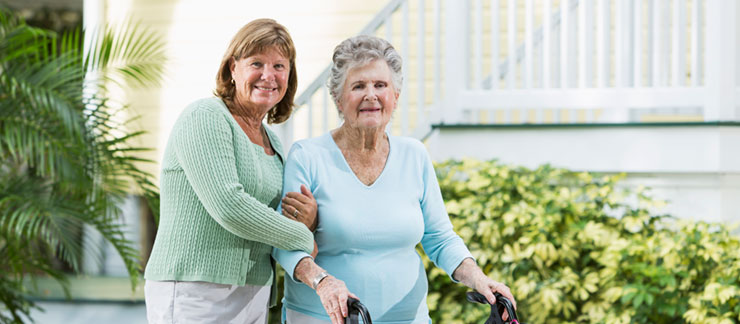
When’s the Right Time to Hire Personal Care Services?
Many seniors depend on personal care for their comfort, safety, and overall quality of life. Yet, even in cases that clearly require dedicated caregiving, families often struggle with when to hire a personal caregiver.
There are a few different reasons for this. Professional caregiving can be costly, so families sometimes worry about affordability. Others don’t fully understand the distinction between personal care and companion care. Also, many elderly adults will resist hiring a personal caregiver. Typically, this stems from feelings of unease or embarrassment about what this type of care entails.
But personal care can be crucial for any senior who wishes to age in place and maintain quality of life. Because of this, it’s important to understand this type of caregiving and when it becomes a necessity.
Unsure whether to hire personal care services for an elderly loved one? The following guide should help clarify when it’s the right time to hire a personal caregiver.
When Does Personal Care Become Necessary?
Generally speaking, there are two different kinds of home care services. First, there’s companion care. This covers basic caregiving needs, like help preparing meals, light housekeeping, and running errands. Next, there’s personal care. This covers more intensive caregiving tasks, including assistance with activities of daily living such as dressing, grooming, and bathing.
Usually, personal care becomes necessary when seniors can no longer safely perform these tasks by themselves. But personal caregiving may also be required in other situations. Limited mobility, an increased risk of falling, or a chronic physical health condition (such as arthritis, diabetes, or COPD) can require personal caregiving.
Based on the above, the need for personal caregiving may seem cut and dry. But that’s rarely the case. Age-related physical difficulties don’t come about all at once. Instead, they develop gradually over time. That makes it easy to miss signs that advanced care may be necessary.
The best way to catch these warning signs is to become familiar with them. Below, we’ve collected five of the most important signs that you may wish to hire a personal or private duty care service.
Signs Your Loved One Needs Personal Caregiving
- Advice from Health Care Professionals.If a doctor or nurse believes that your loved one cannot safely live at home without professional home care, they may recommend that you hire personal or private duty care. This is one of the clearest signs that personal care is a good idea, and one that families need to take seriously.
- Difficulty with Activities of Daily Living. Has your loved one admitted that they struggle with basic personal activities, like dressing or bathing? You may wish to talk with them about whether they might benefit from personal caregiving.
- Fear for Personal Safety and Health.As their physical health declines, many seniors start to fear for their safety and well-being. A professional caregiver can reduce risks of injury and illness, keeping your loved one safe, and dispelling unwanted fears.
- Unexplained Injuries or Self-Neglect.Many elderly adults become embarrassed when they’re no longer able to care for themselves. In these cases, they’re unlikely to admit the need for care. However, family members can often spot signs of decline, including unexplained cuts, scrapes, and bruises, or signs of self-neglect.
- Noticeable Loss of Mobility or Strength.At a certain point, age-related physical decline becomes obvious. When your loved one struggles to move from point A to point B on a regular basis, or doesn’t have the strength to perform everyday tasks, it’s time to start thinking about professional care.
Next Steps: In-Home Consultations & Hiring Caregivers
Even if you’re unsure whether or not your loved one requires professional caregiving, we strongly recommend speaking with local care providers. A consultation comes with zero risk, and if you hire a care service earlier rather than later, that’s rarely a bad thing. On the other hand, failing to hire personal or private duty care can have devastating consequences.
To learn more about personal and private duty care services in your area, we recommend contacting your local Visiting Angels. Each of our locations offers free consultations conducted in the comfort of seniors’ homes.
During your consultation, we’ll discuss your loved one’s care needs, recommend a basic framework for care, and work with you to develop a care plan and schedule that fits your budget and your loved one’s lifestyle. Every client is carefully matched with a compatible caregiver, and through Select Your Caregiver® you can be confident your loved one will get a caregiver who is the right fit for their needs and personality.


